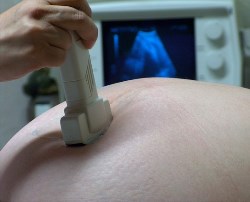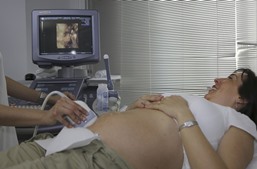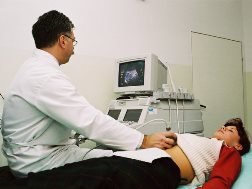How to Find the Best Sonogram Technician School near Compton Arkansas
 Once you have made a decision to pursue an ultrasound technician degree near Compton AR, it’s time to start the procedure of picking a school. To begin with, you have to find the right program that will provide the appropriate education to become a qualified professional. And since a number of states do require that sonographers be either certified or licensed, depending on where you will practice you may also need to be prepared to pass a certification or licensing examination. So it’s extremely important that you research each college in order to evaluate and compare your options. But exactly where does one begin? Most potential students will start by searching for schools that are within commuting distance of their homes and then by comparing tuition. Certainly location and cost must be taken into account when making a decision, but there are other critical factors as well. Such as, if the ultrasound technician schools have earned accreditation or if they provide internships. These and other qualifications will be addressed more in depth later in this post. But first, let’s go over what an ultrasound tech does and the degrees and online education programs that are available.
Once you have made a decision to pursue an ultrasound technician degree near Compton AR, it’s time to start the procedure of picking a school. To begin with, you have to find the right program that will provide the appropriate education to become a qualified professional. And since a number of states do require that sonographers be either certified or licensed, depending on where you will practice you may also need to be prepared to pass a certification or licensing examination. So it’s extremely important that you research each college in order to evaluate and compare your options. But exactly where does one begin? Most potential students will start by searching for schools that are within commuting distance of their homes and then by comparing tuition. Certainly location and cost must be taken into account when making a decision, but there are other critical factors as well. Such as, if the ultrasound technician schools have earned accreditation or if they provide internships. These and other qualifications will be addressed more in depth later in this post. But first, let’s go over what an ultrasound tech does and the degrees and online education programs that are available.
Click Here to Get Free Information on Ultrasound Technician Schools!
Sonographer Occupation Description
 There are more than one professional titles for ultrasound techs (technicians). They are also called ultrasound technologists, sonogram techs, and diagnostic medical sonographers (or just sonographers). Regardless of name, they all have the same primary job description, which is to carry out diagnostic ultrasound procedures on patients. Even though a number of techs practice as generalists there are specializations within the profession, for example in cardiology and pediatrics. The majority practice in Compton AR clinics, hospitals, outpatient diagnostic imaging centers and even private practices. Routine daily work tasks of a sonogram technician may consist of:
There are more than one professional titles for ultrasound techs (technicians). They are also called ultrasound technologists, sonogram techs, and diagnostic medical sonographers (or just sonographers). Regardless of name, they all have the same primary job description, which is to carry out diagnostic ultrasound procedures on patients. Even though a number of techs practice as generalists there are specializations within the profession, for example in cardiology and pediatrics. The majority practice in Compton AR clinics, hospitals, outpatient diagnostic imaging centers and even private practices. Routine daily work tasks of a sonogram technician may consist of:
- Maintaining records of patient case histories and details of each procedure
- Counseling patients by explaining the procedures and answering questions
- Prepping the ultrasound machines for use and then cleaning and re-calibrating them
- Escorting patients to treatment rooms and making them comfortable
- Operating equipment while limiting patient exposure to sound waves
- Assessing results and determining need for supplemental testing
Sonographers must routinely assess the safety and performance of their machines. They also must adhere to a high professional standard and code of conduct as health practitioners. In order to sustain that degree of professionalism and stay up to date with medical knowledge, they are required to enroll in continuing education training on an ongoing basis.
Ultrasound Tech Degree Programs Available
 Sonogram technician students have the option to earn either an Associate Degree or a Bachelor’s Degree. An Associate Degree will typically take about 18 months to 2 years to finish dependent on the program and class load. A Bachelor’s Degree will take longer at up to 4 years to finalize. Another option for those who have previously obtained a college degree is a post graduate certificate program. If you have obtained a Bachelor’s Degree in any major or an Associate Degree in a relevant medical sector, you can enroll in a certificate program that will take only 12 to 18 months to finish. One thing to keep in mind is that the majority of sonographer schools do have a practical training element as a portion of their course of study. It can often be satisfied by taking part in an internship program which many schools organize with Compton AR hospitals and clinics. When you have graduated from any of the certificate or degree programs, you will then need to comply with the licensing or certification prerequisites in Arkansas or whichever state you decide to practice in.
Sonogram technician students have the option to earn either an Associate Degree or a Bachelor’s Degree. An Associate Degree will typically take about 18 months to 2 years to finish dependent on the program and class load. A Bachelor’s Degree will take longer at up to 4 years to finalize. Another option for those who have previously obtained a college degree is a post graduate certificate program. If you have obtained a Bachelor’s Degree in any major or an Associate Degree in a relevant medical sector, you can enroll in a certificate program that will take only 12 to 18 months to finish. One thing to keep in mind is that the majority of sonographer schools do have a practical training element as a portion of their course of study. It can often be satisfied by taking part in an internship program which many schools organize with Compton AR hospitals and clinics. When you have graduated from any of the certificate or degree programs, you will then need to comply with the licensing or certification prerequisites in Arkansas or whichever state you decide to practice in.
Sonogram Tech Online Degrees
 As earlier discussed, virtually all sonogram tech schools have a practical component to their programs. So although you can earn a certificate or degree online, a substantial part of the training will be either conducted in an on-campus lab or at a sponsored off-campus facility. Clinical training can often be fulfilled through an internship at a local Compton AR outpatient clinic, hospital or family practice. However the balance of the training and classes can be accessed online in your Compton home. This is especially convenient for those individuals that keep working while earning their degrees. Plus online programs are often more affordable than on campus alternatives. Costs for commuting and study materials can be lessened as well. But similarly as with every ultrasound tech college you are looking at, make sure that the online program you enroll in is accredited. One of the most highly regarded accrediting organizations is the Commission on Accreditation of Allied Health Education Programs (CAAHEP). Accreditation is particularly significant for certification, licensing and finding employment (more on accreditation later). So if you are motivated enough to learn outside of the classroom in the comfort of your own home, then online classes could be the ideal option for you.
As earlier discussed, virtually all sonogram tech schools have a practical component to their programs. So although you can earn a certificate or degree online, a substantial part of the training will be either conducted in an on-campus lab or at a sponsored off-campus facility. Clinical training can often be fulfilled through an internship at a local Compton AR outpatient clinic, hospital or family practice. However the balance of the training and classes can be accessed online in your Compton home. This is especially convenient for those individuals that keep working while earning their degrees. Plus online programs are often more affordable than on campus alternatives. Costs for commuting and study materials can be lessened as well. But similarly as with every ultrasound tech college you are looking at, make sure that the online program you enroll in is accredited. One of the most highly regarded accrediting organizations is the Commission on Accreditation of Allied Health Education Programs (CAAHEP). Accreditation is particularly significant for certification, licensing and finding employment (more on accreditation later). So if you are motivated enough to learn outside of the classroom in the comfort of your own home, then online classes could be the ideal option for you.
Subjects to Ask Ultrasound Tech Programs
 Now that you have determined which degree or certificate that you would like to earn, you can begin the process of reviewing and comparing ultrasound technician colleges. You may first want to decide whether you will access classes online or commute to a college campus in the Compton AR area. Certainly location will be important if you decide on the latter, and the price of tuition no doubt will be an initial qualifier as well. But there are additional factors that you must also take into consideration, such as if the schools are accredited and if they provide internships. Therefore in order to perform your due diligence so that you can arrive at your ultimate selection, following are several questions that you may want to ask each sonography college prior to making a decision.
Now that you have determined which degree or certificate that you would like to earn, you can begin the process of reviewing and comparing ultrasound technician colleges. You may first want to decide whether you will access classes online or commute to a college campus in the Compton AR area. Certainly location will be important if you decide on the latter, and the price of tuition no doubt will be an initial qualifier as well. But there are additional factors that you must also take into consideration, such as if the schools are accredited and if they provide internships. Therefore in order to perform your due diligence so that you can arrive at your ultimate selection, following are several questions that you may want to ask each sonography college prior to making a decision.
Are the Sonogram Technician Schools Accredited? The majority of ultrasound technician schools have acquired some form of accreditation, whether regional or national. Nevertheless, it’s still imperative to verify that the program and school are accredited. One of the most highly regarded accrediting organizations in the field of sonography is the Joint Review Committee on Education in Diagnostic Medical Sonography (JRC-DMS). Schools obtaining accreditation from the JRC-DMS have undergone an extensive assessment of their teachers and educational materials. If the school is online it may also obtain accreditation from the Distance Education and Training Council, which targets distance or online education. All accrediting organizations should be recognized by the U.S. Department of Education or the Council on Higher Education Accreditation. In addition to guaranteeing a quality education, accreditation will also assist in getting financial assistance and student loans, which are frequently not offered for non-accredited schools. Accreditation may also be a pre-requisite for licensing and certification as required. And numerous Compton AR health facilities will only hire a graduate of an accredited school for entry-level openings.
Are Internship Programs Sponsored? Inquire if the sonogram technician schools you are reviewing have relationships with Compton AR hospitals or clinics for internship programs. Not only are internships an excellent way to obtain practical training in a clinical environment, they are additionally a way to satisfy the practical training requirement for the majority of programs. As a secondary benefit, they may help graduates and students develop professional connections in the Compton health care community and assist with obtaining employment.
Is Job Placement Assistance offered? You will probably wish to hit the ground running after graduation, but finding that first job in a new profession can be challenging without help. Ask if the ultrasound tech schools you are reviewing have job placement programs and what their success rates are. High and rapid placement rates are an excellent indication that the schools have large networks and good relationships with Arkansas healthcare employers. It also corroborates that their students are well regarded and sought after.
Where is the College Located? For a lot of students, the college they decide on will have to be within commuting distance of their Compton AR residence. Students who have decided to attend classes online obviously will not have to trouble themselves with the location of the campus. However, the availability of local internships will be of concern. One thing to consider is that if you decide to enroll in a college that is out of state or even out of your local area, you might need to pay a higher tuition. State colleges typically charge higher tuitions for out of state residents. And community colleges typically charge a higher tuition for those students that don’t reside within their districts.
What are the Class Sizes ? Unless you are the type of student that prefers to sit far in the rear of class or hide in the crowd, you will probably prefer a smaller class size. Small classes enable more individual participation and personalized instruction. Ask the schools you are considering what the average teacher to student ratio is for their classrooms. If practical you may want to sit in on one or more classes before making your ultimate decision. This will also give you an opportunity to talk with a few of the instructors and students to get their perspectives regarding the sonogram tech program as well.
Does the Program Accommodate your Schedule? And finally you must confirm that the sonographer school you ultimately pick can provide the class schedule you need. This is particularly essential if you choose to continue working while attending school. If you need to schedule night or weekend classes in the Compton AR area, confirm that they are available. If you can only attend part-time, find out if that is an alternative and how many credit hours or courses you would have to enroll in. Also, find out what the protocol is for making up any classes that you may miss due to work, illness or family emergencies.
How To Become An Ultrasound Technician Compton Arkansas
 Choosing the right sonographer degree or certificate program is a vital first step to commencing a rewarding new career delivering diagnostic services to patients. Ultrasound technician programs require that you have a high school diploma or a GED. Apart from meeting academic standards, you must be in at least fairly good physical condition, able to stand for prolonged periods and able to routinely lift weights of fifty pounds or more, as is it often necessary to adjust patients and maneuver heavy machines. Other preferred talents include technical proficiency, the ability to remain collected when confronted by an angry or anxious patient and the ability to communicate clearly and compassionately. You originally came to this website due to an interest in How To Become An Ultrasound Technician and wanting more information on Cardiac Sonography Programs. However, as we have addressed in this article, there are a number of questions that you should ask each program you are considering. This holds true whether you enroll in an online program or drive to the college campus to attend classes. And by asking the proper questions so that you can compare each school, you can narrow down your choices until you are left with the best school for your education. And with the right training, discipline and motivation to succeed, you can realize your objective to practice as an sonographer in Compton AR.
Choosing the right sonographer degree or certificate program is a vital first step to commencing a rewarding new career delivering diagnostic services to patients. Ultrasound technician programs require that you have a high school diploma or a GED. Apart from meeting academic standards, you must be in at least fairly good physical condition, able to stand for prolonged periods and able to routinely lift weights of fifty pounds or more, as is it often necessary to adjust patients and maneuver heavy machines. Other preferred talents include technical proficiency, the ability to remain collected when confronted by an angry or anxious patient and the ability to communicate clearly and compassionately. You originally came to this website due to an interest in How To Become An Ultrasound Technician and wanting more information on Cardiac Sonography Programs. However, as we have addressed in this article, there are a number of questions that you should ask each program you are considering. This holds true whether you enroll in an online program or drive to the college campus to attend classes. And by asking the proper questions so that you can compare each school, you can narrow down your choices until you are left with the best school for your education. And with the right training, discipline and motivation to succeed, you can realize your objective to practice as an sonographer in Compton AR.
More Ultrasound Locations in Arkansas
Compton scattering
Compton scattering, discovered by Arthur Holly Compton, is the scattering of a photon by a charged particle, usually an electron. It results in a decrease in energy (increase in wavelength) of the photon (which may be an X-ray or gamma ray photon), called the Compton effect. Part of the energy of the photon is transferred to the recoiling electron. Inverse Compton scattering occurs when a charged particle transfers part of its energy to a photon.
Compton scattering is an example of inelastic scattering[1] of light by a free charged particle, where the wavelength of the scattered light is different from that of the incident radiation. In Compton's original experiment (see Fig. 1), the energy of the X ray photon (≈17 keV) was very much larger than the binding energy of the atomic electron, so the electrons could be treated as being free. The amount by which the light's wavelength changes is called the Compton shift. Although nuclear Compton scattering exists,[2] Compton scattering usually refers to the interaction involving only the electrons of an atom. The Compton effect was observed by Arthur Holly Compton in 1923 at Washington University in St. Louis and further verified by his graduate student Y. H. Woo in the years following. Compton earned the 1927 Nobel Prize in Physics for the discovery.
The effect is significant because it demonstrates that light cannot be explained purely as a wave phenomenon. [3]Thomson scattering, the classical theory of an electromagnetic wave scattered by charged particles, cannot explain shifts in wavelength at low intensity: classically, light of sufficient intensity for the electric field to accelerate a charged particle to a relativistic speed will cause radiation-pressure recoil and an associated Doppler shift of the scattered light,[4] but the effect would become arbitrarily small at sufficiently low light intensities regardless of wavelength. Thus, light must behave as if it consists of particles, if we are to explain low-intensity Compton scattering. Or the assumption that the electron can be treated as free is invalid resulting in the effectively infinite electron mass equal to the nuclear mass (see e.g. the comment below on elastic scattering of X-rays being from that effect). Compton's experiment convinced physicists that light can be treated as a stream of particle-like objects (quanta called photons), whose energy is proportional to the light wave's frequency. But see the article on Julian Schwinger for Schwinger's different assessment of the necessity of any particles at all in a consistent QED or QCD.
